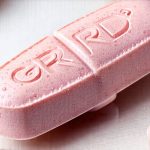Indigestion, a common ailment affecting millions, often manifests as discomfort after eating – bloating, heartburn, gas, nausea, and a general feeling of fullness. We frequently reach for quick fixes like antacids, but rarely consider the fundamental process that precedes digestion: chewing. It’s easy to underestimate the power of this seemingly simple act, yet thorough chewing is arguably one of the most effective, natural, and readily available tools we have for improving digestive health and alleviating indigestion symptoms. Many modern eating habits prioritize speed and convenience over mindful consumption, leading us to swallow large, poorly broken-down food particles that place a significant burden on our digestive system.
The connection between chewing and digestion isn’t merely anecdotal; it’s rooted in the physiology of how our bodies process food. Digestion doesn’t begin in the stomach – it starts in the mouth. Saliva contains enzymes, like amylase, which initiate carbohydrate breakdown. Chewing mechanically breaks down food into smaller pieces, increasing its surface area and allowing these digestive enzymes to work more efficiently. Moreover, proper chewing signals our gut to prepare for incoming nourishment, optimizing hormonal responses and promoting healthy gastric motility. Neglecting this initial stage can disrupt the entire digestive cascade, leading to a host of uncomfortable symptoms and potentially long-term health issues. Understanding gut test results can help personalize your approach to digestion.
The Mechanics of Digestion & Chewing’s Role
Digestion is a complex process involving multiple organs, enzymes, hormones, and neurological signals. It’s not simply about swallowing food; it’s about systematically breaking down food into absorbable nutrients. When we don’t chew adequately, the stomach and intestines are forced to work harder – significantly harder – to compensate. Large food boluses require more gastric acid for breakdown, potentially leading to heartburn and indigestion. Furthermore, incomplete digestion can result in nutrient malabsorption, impacting overall health and energy levels. The first stage of digestion is arguably the most important; setting up the entire process for success.
Consider what happens when you quickly consume a meal. The food arrives in your stomach as large chunks that haven’t been properly prepared. This forces your stomach to exert more effort, producing excess acid and potentially causing bloating or discomfort. Undigested food then moves into the small intestine, where it can ferment, leading to gas production and further digestive distress. In contrast, thoroughly chewed food is easier for the stomach to process, reduces the need for excessive acid production, and allows for optimal nutrient absorption in the small intestine. If you are experiencing frequent discomfort, early-stage testing might be beneficial.
Chewing also activates vagal nerve stimulation. The vagal nerve plays a crucial role in the “rest and digest” response of the parasympathetic nervous system. It helps regulate heart rate, breathing, and – importantly – digestive function. Activating this nerve through mindful chewing promotes relaxation, reduces stress, and improves overall gut health. This is why taking your time with meals and focusing on thorough chewing can be a surprisingly effective way to ease indigestion symptoms and improve your sense of well-being. Addressing gut inflammation early on is also important for optimal health.
Why We’ve Lost the Art of Chewing
Modern lifestyles contribute significantly to poor chewing habits. We live in a fast-paced world where convenience often trumps mindful eating. Meals are frequently consumed on the go, while multitasking, or during periods of stress – all factors that discourage proper chewing. Fast food culture further exacerbates this issue; foods are often designed for quick consumption rather than optimal digestion. Soft, processed foods require minimal chewing, leading to a decline in our natural chewing reflexes and a diminished awareness of how long it truly takes to break down food properly.
Beyond lifestyle factors, the very structure of our diets may play a role. Highly processed foods lack the fibrous texture that encourages prolonged chewing. We’ve moved away from whole, unprocessed foods – fruits, vegetables, grains – which naturally demand more mastication. This shift has created a cycle where we’re less accustomed to the effort required for thorough chewing and therefore less likely to engage in it. Re-establishing healthy chewing habits requires conscious awareness and deliberate practice. A gut reset diet can help you re-evaluate your eating patterns.
The Benefits Beyond Indigestion
The benefits of thorough chewing extend far beyond simply alleviating indigestion. Improved digestion leads to better nutrient absorption, which supports overall health and vitality. Studies suggest that mindful eating practices, including slow and thorough chewing, can contribute to weight management by promoting feelings of fullness and reducing overeating. By activating the vagal nerve, chewing also helps reduce stress levels and improve mental clarity.
Furthermore, proper chewing strengthens jaw muscles and improves oral health. It stimulates saliva production, which not only aids digestion but also protects teeth from decay. A seemingly simple act like chewing can therefore have a profound impact on our physical and mental well-being. This holistic approach to digestive health recognizes that the gut is intricately connected to other systems in the body – the brain, immune system, and endocrine system – emphasizing the importance of mindful eating practices. Portion control also plays a key role.
How to Reclaim Your Chewing Habits
Reintegrating thorough chewing into your daily routine requires conscious effort and a few simple strategies:
- Slow Down: This is perhaps the most crucial step. Put away distractions (phones, televisions) during meals and focus on savoring each bite.
- Count Your Chews: Aim for at least 20-30 chews per mouthful – even more for denser foods. It might feel awkward initially, but it becomes easier with practice.
- Focus on Texture: Pay attention to the texture of your food as you chew. Notice how it changes from hard and solid to soft and liquid.
- Smaller Bites: Take smaller portions to encourage slower eating and more thorough chewing.
- Choose Whole Foods: Incorporate more whole, unprocessed foods into your diet – fruits, vegetables, nuts, seeds – which naturally require more chewing effort.
- Practice Mindfulness: Approach meals with a mindful attitude, appreciating the food you’re consuming and recognizing its nourishing properties.
By consciously incorporating these strategies into your daily routine, you can reclaim your chewing habits and unlock the many benefits of this often-overlooked aspect of digestive health. Remember that it’s not about perfection; it’s about making small, consistent changes that will ultimately lead to a healthier and more comfortable relationship with food. Understanding digestive enzyme tests can also help identify specific digestive challenges. Finally, consider how full body scans can provide a comprehensive view of your health.


















